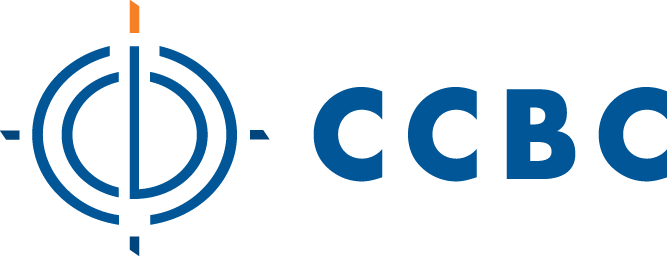19.4 Oropharyngeal Specimen Collection
Open Resources for Nursing (Open RN)
The oropharynx is the part of the throat at the back of the mouth behind the oral cavity. It includes the back third of the tongue, the soft palate, the side and back walls of the throat, and the tonsils.[1] When obtaining a specimen from this area, it is important to avoid the tongue and teeth. Depending on the test ordered, the nurse may obtain the specimen from the tonsils alone or the posterior pharynx (throat) and the tonsils. Keep in mind that if you are ever unsure about how to accurately obtain a specimen, lab technicians are a great resource.
See the “Checklist for Oropharyngeal Testing” for additional details about performing the procedure.
Life Span Considerations
Infants and Children
Specimen collection on infants and children may require the support of another health care provider or a parent. Educate the patient and the parent about the procedure and the expectations if the parent decides to assist with the specimen collection. During specimen collection, it’s important that the patient is immobile to prevent injury to the nasal cavity, nasopharyngeal, or oropharynx.
View a supplementary YouTube video from Medscape on How to Perform a Throat Swab[2].
- National Cancer Institute. (n.d.). Oropharynx. https://www.cancer.gov/publications/dictionaries/cancer-terms/def/oropharynx ↵
- Medscape. (2018, August 23). How to perform a throat swab on a patient [Video]. YouTube. All rights reserved. https://youtu.be/-uyBJ0nv4oI ↵
Nursing team members working in inpatient or long-term care settings receive patient assignments at the start of their shift. Assignment refers to routine care, activities, and procedures that are within the legal scope of practice of registered nurses (RN), licensed practical/vocational nurses (LPN/VN), or assistive personnel (AP).[1] Scope of practice for RNs and LPNs is described in each state's Nurse Practice Act. Care tasks for AP vary by state; regulations are typically listed on sites for the state's Board of Nursing, Department of Health, Department of Aging, Department of Health Professions, Department of Commerce, or Office of Long-Term Care.[2]
See Table 3.3a for common tasks performed by members of the nursing team based on their scope of practice. These tasks are within the traditional role and training the team member has acquired through a basic educational program. They are also within the expectations of the health care agency during a shift of work. Agency policy can be more restrictive than federal or state regulations, but it cannot be less restrictive.
Patient assignments are typically made by the charge nurse (or nurse supervisor) from the previous shift. A charge nurse is an RN who provides leadership on a patient-care unit within a health care facility during their shift. Charge nurses perform many of the tasks that general nurses do, but also have some supervisory duties such as making assignments, delegating tasks, preparing schedules, monitoring admissions and discharges, and serving as a staff member resource.[3]
Table 3.3a. Nursing Team Members’ Scope of Practice and Common Tasks[4]
| Nursing Team Member | Scope of Practice | Common Tasks
|
|---|---|---|
| RN |
|
|
| LPN/VN |
|
Tasks That Potentially Can Be Delegated According to the Five Rights of Delegation:
|
| AP |
|
|
An example of a patient assignment is when an RN assigns an LPN/VN to care for a client with stable heart failure. The LPN/VN collects assessment data, monitors intake/output throughout the shift, and administers routine oral medication. The LPN/VN documents this information and reports information back to the RN. This is considered the LPN/VN’s “assignment” because the skills are taught within an LPN educational program and are consistent with the state’s Nurse Practice Act for LPN/VN scope of practice. They are also included in the unit’s job description for an LPN/VN. The RN may also assign some care for this client to AP. These tasks may include assistance with personal hygiene, toileting, and ambulation. The AP documents these tasks as they are completed and reports information back to the RN or LPN/VN. These tasks are considered the AP’s assignment because they are taught within a nursing aide's educational program, are consistent with the AP's scope of practice for that state, and are included in the job description for the nursing aide's role in this unit. The RN continues to be accountable for the care provided to this client despite the assignments made to other nursing team members.
Special consideration is required for AP with additional training. With increased staffing needs, skills such as administering medications, inserting Foley catheters, or performing injections are included in specialized training programs for AP. Due to the impact these skills can have on the outcome and safety of the client, the National Council of State Board of Nursing (NCSBN) recommends these activities be considered delegated tasks by the RN or nurse leader. By delegating these advanced skills when appropriate, the nurse validates competency, provides supervision, and maintains accountability for client outcomes. Read more about delegation in the “Delegation” section of this chapter.
When making assignments to other nursing team members, it is essential for the RN to keep in mind specific tasks that cannot be delegated to other nursing team members based on federal and/or state regulations. These tasks include, but are not limited to, those tasks described in Table 3.3b.
Table 3.3b. Examples of Tasks Outside the Scope of Practice of Nursing Assistive Personnel
| Nursing Team Member | Tasks That Cannot Be Delegated
|
|---|---|
| LPN/VN |
|
| Assistive Personnel (AP) |
|
As always, refer to each state’s Nurse Practice Act and other state regulations for specific details about nursing team members’ scope of practice when providing care in that state.
Find and review Nurse Practice Acts by state at https://www.ncsbn.org/policy/npa.page.
Read more about the Wisconsin's Nurse Practice Act and the standards and scope of practice for RNs and LPNs at Wisconsin's Legislative Code Chapter N6.
Read more about scope of practice, skills, and practices of nurse aides in Wisconsin at DHS 129.07 Standards for Nurse Aide Training Programs.

